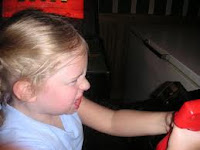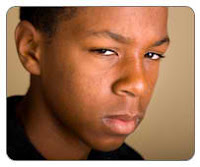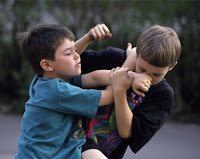Violent Children on the Spectrum: What Parents and Teachers Can Do

Question I am a special education teacher. I have an autistic (high functioning) student that hits impulsively. We have tried behavior modification, social stories, sensory exercises, and music therapy. She will say what she did was wrong and we will role play the correct behavior. She still hits and is getting in a lot of trouble. There is no pattern or functional cause. I want to help her but am running out of ideas. Does you have any suggestions?? Answer There is a great concern about the incidence of violent behavior among kids and teens with High-Functioning Autism (HFA) and Asperger's (AS). This complex and troubling issue needs to be carefully understood by parents, educators, and other grown-ups. HFA and AS kids as young as preschoolers can show violent behavior. Moms and dads and other adults who witness the behavior may be concerned; however, they often hope that the young child will "grow out of it." Violent behavior in a youngster at any age a



